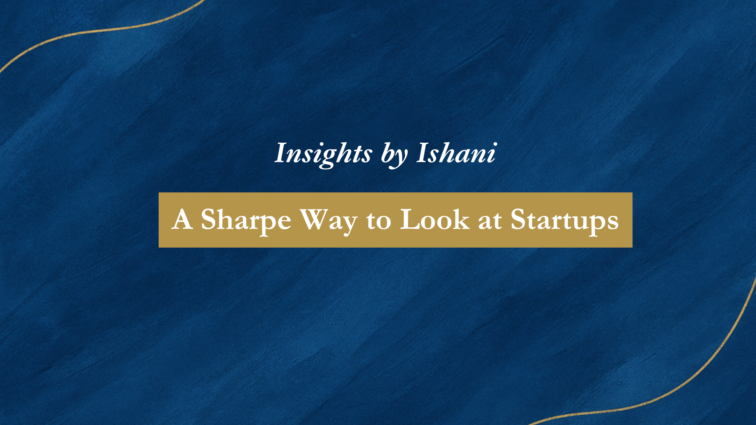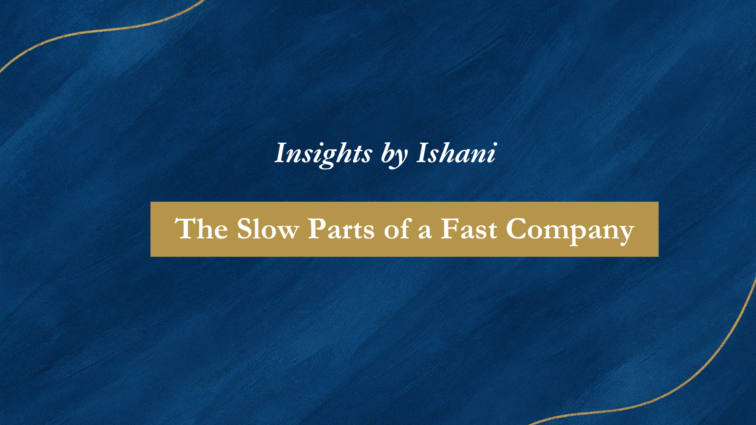In traditional finance, the Sharpe Ratio helps us assess whether returns are commensurate with the risk taken to achieve them. It measures excess return per unit of volatility, offering a way to evaluate quality of return, not just quantity. While we may not apply the formula directly in early-stage investing, the idea behind it remains useful. In startups, volatility […]
In the context of early-stage companies, frugality is often reduced to low burn or lean budgets. But, it’s not just a financial decision, it’s a mindset. Over time, we’ve seen that frugality tends to show up in four areas: →TimeFrugal founders are intentional with their hours.They prioritise high-leverage tasks over constant motion. →TeamHiring is deliberate.Each […]
We often believe we’re using our time wisely but like money, time gets mentally labelled. And those labels quietly shape how we spend it, often in ways we don’t fully examine. Nobel laureate Richard Thaler described this as mental accounting, the idea that we treat the same resource differently depending on how we categorise it. […]
Startups operate in motion – fast cycles, evolving markets, constant pressure to adapt. Every part of the company is expected to move, iterate, and scale. However, not everything may be required to move at the same speed. This is where the Lindy Effect becomes a useful mental model. The term originated from Lindy’s Deli in […]
At Sarcha Advisors, we’ve seen several companies face difficult situations, not because the idea wasn’t strong, but because they didn’t have enough cash flow visibility when it mattered most. When a fundraise takes longer than expected, or the burn increases unexpectedly, it creates pressure. It can impact decision-making, shift priorities, and sometimes lead to choices […]
I was recently asked at the “Investors Luncheon – Think Global, Act Global!” organised by Viapar Capital on why I chose to work with my father, Rohit Chanana a first-generation founder. The question made me pause and reflect deeply because the answer isn’t just about business; it’s about everything that’s shaped me, the journey that […]
Every founder starts with a vision to create something meaningful, to solve a problem, to make a dent in the universe. But somewhere along the journey, one question becomes pivotal: Are we building for “valuation” or for “legacy”? And in answering that, another often-overlooked pillar emerges ”governance”. A conscious mindset is grounded in purpose, values, […]
AI startups are undeniably real and full of potential. However, what concerns me is the current approach to evaluating them. Too often, there is either a lack of deep domain expertise or a failure to fully appreciate the complexity and true potential of AI technologies or sometimes both. Take, for example, a startup focused on […]
This white paper explores the innovation ecosystems of the United States, China, and India, comparing their models, outcomes, and investment strategies. While the U.S. and China have surged ahead through decentralized and state-led innovation respectively, India finds itself at a critical juncture—rich in talent and potential but underpowered in terms of investment, coordination, and long-term […]
The recent 70–90 hour workweek debate triggered by Mr N.R. Narayana Murhty and echoed by Chairman of Larsen & Toubro, Mr Subrahmanyan has sparked widespread conversation. While I deeply admire both these stalwarts, I offer a different lens, one grounded in my own experience, reflection, and some hard-earned lessons. I don’t believe that productivity is […]










